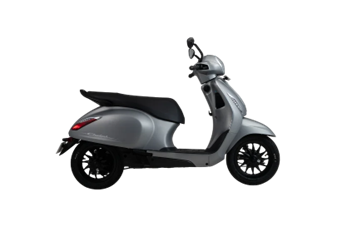As cities worldwide continue to expand, the question arises: How can urban centers adapt to meet the challenges of the 21st century?
Smart cities technology is the key to transforming urban areas into hubs of efficiency, sustainability, and improved quality of life.
By leveraging cutting-edge innovations, smart cities are revolutionizing how we interact with our surroundings.
What Makes a City “Smart”?
A smart city integrates advanced technologies to enhance urban living while addressing economic, environmental, and social challenges.
At the heart of these developments lies smart cities technology, which includes sensors, data analytics, artificial intelligence (AI), and the Internet of Things (IoT).
These tools enable cities to optimize resources, improve infrastructure, and offer tailored services to their residents.
A great example of this transformation is a smart city that is utilizing IoT technology to help its residents streamline their daily routines.
Through connected devices and real-time data sharing, cities can manage traffic, conserve energy, and even predict maintenance needs for public infrastructure.
Why Did Smart Cities Gain Momentum?
The concept of smart cities isn’t new, but their rapid growth can be attributed to global economic and environmental challenges.
Smart cities gained momentum due to the economic crisis of the late 2000s. Governments and municipalities recognized the need for innovative solutions to sustain urban growth while addressing budgetary constraints and resource limitations.
These crises acted as a catalyst for adopting smart technologies to ensure more sustainable and cost-effective city planning.
The Role of IoT in Smart Cities
IoT, or the Internet of Things, is a cornerstone of smart city development. Cities like Singapore, Barcelona, and Amsterdam are leading the way by implementing IoT-driven solutions.
These cities showcase how smart cities technology can deliver smarter transportation systems, waste management, and energy distribution.
For example, Barcelona uses IoT-enabled sensors in its waste bins to optimize collection schedules, reducing fuel consumption and operational costs.
Similarly, Singapore’s Smart Nation initiative includes smart traffic systems and connected public housing projects, which are prime examples of a smart city that is utilizing IoT technology to help its residents navigate urban life more efficiently.
Key Technologies Driving Smart Cities
Big data plays a crucial role in the decision-making processes of smart cities. By analyzing data collected from IoT devices, cities can identify patterns, optimize resource usage, and improve public services.
Artificial Intelligence
AI is at the forefront of innovations such as predictive maintenance, traffic flow management, and smart energy systems. For instance, AI-powered algorithms can predict peak energy usage times, enabling better grid management.
5G Connectivity
High-speed internet is essential for real-time communication among IoT devices. 5G networks enhance the reliability and speed of data transmission, allowing cities to implement more advanced solutions.
Renewable Energy Technologies
Smart cities prioritize sustainability. Solar panels, wind turbines, and energy storage systems are integrated into urban landscapes, helping reduce reliance on fossil fuels.
Benefits of Smart Cities
Smart cities offer a wide range of benefits, including:
Enhanced Quality of Life: From improved public transport to safer streets, smart technologies aim to make urban living more convenient and enjoyable.
Sustainability: By reducing waste and optimizing resource usage, smart cities contribute to a greener future.
Economic Growth: Investments in smart technologies often lead to job creation and attract businesses, boosting local economies.
Cost Savings: Efficient systems reduce operational costs for municipalities and lower utility bills for residents.
For example, LBS Insight highlights how smart city initiatives drive economic growth by creating opportunities for innovation and collaboration.
Challenges in Building Smart Cities
Despite their advantages, implementing smart cities technology comes with challenges:
High Costs: Initial investments in infrastructure and technology can be prohibitive.
Data Privacy Concerns: Collecting vast amounts of data raises questions about how it’s stored and used.
Technological Inequality: Not all residents may have equal access to smart services, potentially widening the digital divide.
Addressing these challenges requires collaboration between governments, businesses, and communities to create inclusive solutions.
The Future of Smart Cities
Looking ahead, the evolution of smart cities will likely focus on personalization and sustainability.
The integration of AI and IoT will enable more responsive urban environments, tailored to the needs of individual residents.
Additionally, advancements in renewable energy and sustainable building practices will further reduce the environmental footprint of urban areas.
Conclusion: Pioneering a Smarter Tomorrow
Smart cities represent the next step in urban evolution.
By harnessing smart cities technology, municipalities can create more sustainable, efficient, and livable environments.
As these cities continue to grow, they pave the way for a future where innovation and sustainability go hand in hand, transforming urban life for generations to come.
Photo by Joey Kyber on Unsplash (Free for commercial use)
Image published on September 5, 2016




